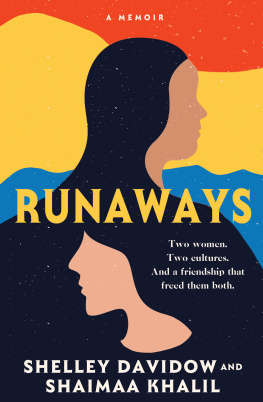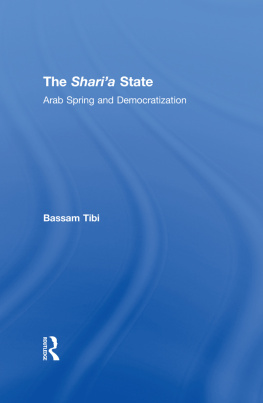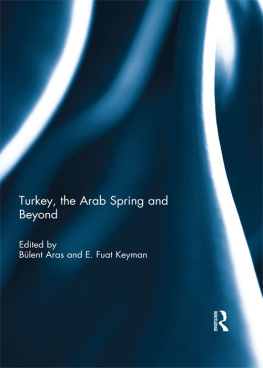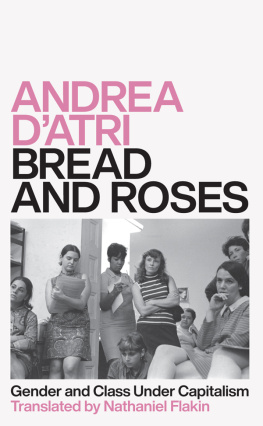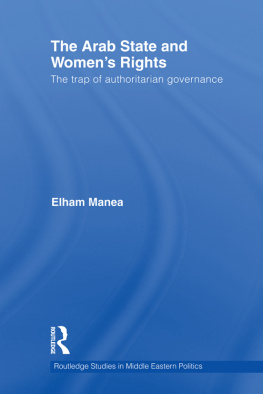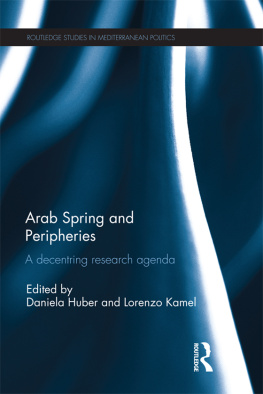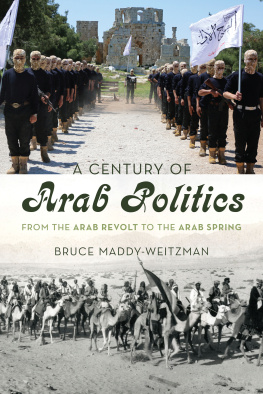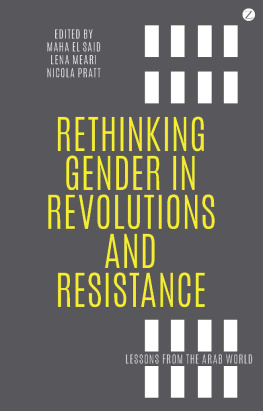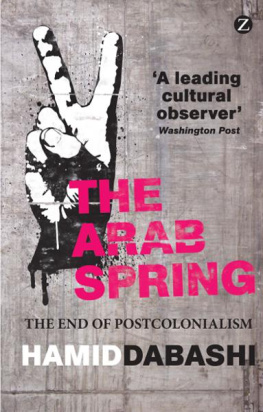Gender, Women and the Arab Spring
This book provides a unique investigation into the gender dynamics of the Arab Spring as it unfolded in North Africa. It covers issues such as gender legislation in the post-revolution period, sexual harassment, gender activism, politics and the female body, women and Islamist movements, state feminism, women and political economy, and womens rights in the context of political transitions. Chapters on Morocco, Tunisia, Algeria, Libya and Egypt are written by specialists and activists from those countries. It includes a rare, first-hand insight into the gender debates, human rights violations and politics of post-Qaddafi Libya, written by a Libyan scholar directly engaged in these developments. An analysis of post-Mubarak gender debates in Egypt is detailed by a gender activist and scholar currently engaged in these debates in favour of gender equitable legislation and human rights in Egypt. Two former Ministers of Womens Affairs from Tunisia and Algeria, who are also prolific scholars, provide analysis on the situation of womens rights in the context of Islamism and freedom of artistic expression in Tunisia and Algeria. In addition to these first-hand accounts written by North African political and civil society actors, the book provides a comprehensive theoretical background that allows for readers to understand the historical and deeper cultural contexts of gender struggles. The Introduction frames the larger debate about gender equality and democratisation in the North Africa/Middle East region and presents the lines of investigation of the chapters. Each chapter contains a clear framing of the subject that will orient, educate, and intelligently inform the general reader about the history, current developments and stakes of womens struggles that have intensified and shifted since the beginning of the Arab Spring.
This book was previously published as a special issue of The Journal of North African Studies.
Andrea Khalil, PhD, Associate Professor of Comparative Literature and Middle East Studies, Queens College, The City University of New York, USA. Khalil is the author of several books and articles on North Africa including Crowds and Politics in North Africa: Tunisia, Algeria and Libya (2014), North African Cinema in a Global Context: Through the Lens of Diaspora (2008, editor) and The Arab Avant-Garde: Experiments in North African Art and Literature (2003).
Gender, Women and the Arab Spring
Edited by
Andrea Khalil
First published 2015
by Routledge
2 Park Square, Milton Park, Abingdon, Oxon, OX14 4RN, UK
and by Routledge
711 Third Avenue, New York, NY 10017, USA
Routledge is an imprint of the Taylor & Francis Group, an informa business
2015 Taylor & Francis
All rights reserved. No part of this book may be reprinted or reproduced or utilised in any form or by any electronic, mechanical, or other means, now known or hereafter invented, including photocopying and recording, or in any information storage or retrieval system, without permission in writing from the publishers.
Trademark notice: Product or corporate names may be trademarks or registered trademarks, and are used only for identification and explanation without intent to infringe.
British Library Cataloguing in Publication Data
A catalogue record for this book is available from the British Library
ISBN 13: 978-1-138-81522-3
ePub eISBN 13: 978-1-317-59915-9
Mobipocket/Kindle eISBN 13: 978-1-317-59914-2
Typeset in Times New Roman
by RefineCatch Limited, Bungay, Suffolk
Publishers Note
The publisher accepts responsibility for any inconsistencies that may have arisen during the conversion of this book from journal articles to book chapters, namely the possible inclusion of journal terminology.
Disclaimer
Every effort has been made to contact copyright holders for their permission to reprint material in this book. The publishers would be grateful to hear from any copyright holder who is not here acknowledged and will undertake to rectify any errors or omissions in future editions of this book.
Contents
Andrea Khalil
Valentine M. Moghadam
Boutheina Cheriet
Lilia Labidi
Sherine Hafez
Andrea Khalil
Zahra Langhi
Maya Morsy
Mounira M. Charrad and Amina Zarrugh
Loubna Hanna Skalli
Samia Errazzouki
The chapters in this book were originally published in TheJournal of North African Studies, volume 19, issue 2 (March 2014). When citing this material, please use the original page numbering for each article, as follows:
Chapter 1
Editors Preface: Gender paradoxes of the Arab Spring
Andrea Khalil
The Journal of North African Studies, volume 19, issue 2 (March 2014) pp. 131136
Chapter 2
Modernising women and democratisation after the Arab Spring
Valentine M. Moghadam
The Journal of North African Studies, volume 19, issue 2 (March 2014) pp. 137142
Chapter 3
The Arab Spring exception: Algerias political ambiguities and citizenship rights
Boutheina Cheriet
The Journal of North African Studies, volume 19, issue 2 (March 2014) pp. 143156
Chapter 4
Political, aesthetic, and ethical positions of Tunisian women artists, 201113
Lilia Labidi
The Journal of North African Studies, volume 19, issue 2 (March 2014) pp. 157171
Chapter 5
The revolution shall not pass through womens bodies: Egypt, uprising and gender politics
Sherine Hafez
The Journal of North African Studies, volume 19, issue 2 (March 2014) pp. 172185
Chapter 6
Tunisias women: partners in revolution
Andrea Khalil
The Journal of North African Studies, volume 19, issue 2 (March 2014) pp. 186199
Chapter 7
Gender and state-building in Libya: towards a politics of inclusion
Zahra Langhi
The Journal of North African Studies, volume 19, issue 2 (March 2014) pp. 200210
Chapter 8
Egyptian women and the 25th of January Revolution: presence and absence
Maya Morsy
The Journal of North African Studies, volume 19, issue 2 (March 2014) pp. 211229
Chapter 9
Equal or complementary? Women in the new Tunisian Constitution after the Arab Spring
Mounira M. Charrad and Amina Zarrugh
The Journal of North African Studies, volume 19, issue 2 (March 2014) pp. 230243
Chapter 10
Young women and social media against sexual harassment in North Africa
Loubna Hanna Skalli
The Journal of North African Studies, volume 19, issue 2 (March 2014) pp. 244258
Chapter 11
Working-class women revolt: gendered political economy in Morocco
Samia Errazzouki
The Journal of North African Studies, volume 19, issue 2 (March 2014) pp. 259267
Please direct any queries you may have about the citations to clsuk.permissions@cengage.com
INTRODUCTION
Gender paradoxes of the Arab Spring
The idea for this collected volume came out of an urgent need to focus on how women are impacting and being impacted by the on-going transformations in the Arab Spring geography. The events in Tunisia, Egypt, Morocco, Libya, Algeria and across the region have been permeated by struggles related to womens rights: gender politics (legislation, constitutional articles and transitional justice) and gender-based violence. However, serious discussions about gender equity have been sidelined by louder and on-going complications of transitional democracy, constitution drafting, elections and protracted questions of transitional justice. All of these aspects of democratic transition in North Africa have gender-related dimensions, yet these dimensions have been marginalised or recuperated by political agendas. As most of the contributors in this volume point out in their essays, gender-sensitive legislations (quotas, personal status codes, justice for female victims of state violence, etc.) have been discussed in ideological ways through the state feminist discourses of the previous regimes as well as the governments that rose to power after the Arab Spring. The aim of the volume is to propose new lenses for thinking about gender, given the contemporary context, to provide a theoretical understanding of events that have occurred to women, and to make sense of the gender-political debates since the Arab Spring. The authors of this volume have tracked, measured and theorised womens involvement in protest, debates about citizenship, constitution-writing and electoralism throughout the historic events of 201113 across North Africa.




